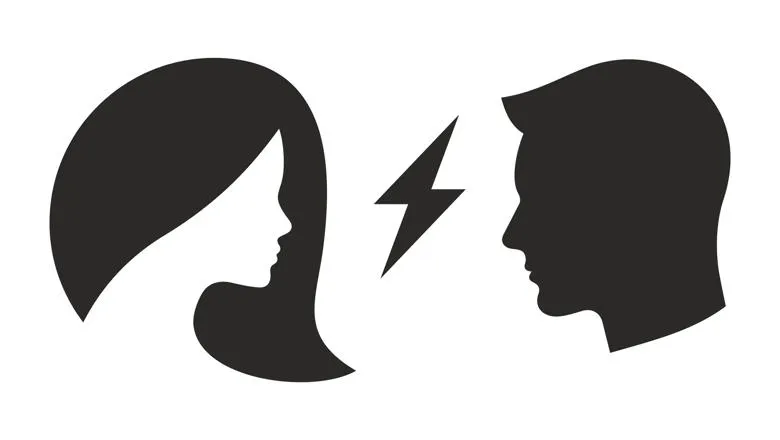“This study forms part of a larger programme of research which has explored IPVA in military communities. The voice of civilian partners and spouses who are victims-survivors of IPVA by military personnel was an essential part of this research. We hope that our findings will help the MOD in their review of their 2018 Domestic Abuse Strategy. Participants’ experiences suggest that a shift in attitude to and understanding of IPVA is needed from the top down and bottom up in the military and action taken to reduce barriers to help-seeking for civilian partners, and improve access to and experience of both military and civilian support services.”
Dr Deirdre MacManus, Lead Researcher from KCMHR
12 October 2021
Aspects of military culture seen to contribute to violence and abuse towards partners
Some aspects of military culture and lifestyle contribute to experiences of intimate partner violence and abuse (IPVA) in civilian partners of military personnel, according to a new report.

The report, led by Dr Deirdre MacManus at the King's Centre for for Military Health Reserach, is one of the first UK qualitative studies to explore the unique experiences of civilian victim/survivors of IPVA perpetrated by serving or ex-Service personnel.
In 25 interviews with survivors of IPVA perpetrated by military personnel, most reported multiple forms of abuse, with physical and psychological trauma resulting from their experiences.
Interviewees perceived some aspects of military culture as having contributed to their experiences. These included: military training or rank dynamics contributing to a normalisation of violence and aggressive communication styles; alcohol use; the pressures resulting from work-family conflict (where family were viewed as ‘second best’); and a gender-focused expectation of female spouses within predominantly male military communities.
Aspects of military lifestyle, including frequent relocations, deployments and transition out of the military, were also seen to provide contexts in which IPVA was more likely to occur or worsen. Examples given were deployment separations and the challenges of reintegration into family life and/or relationships or difficulties adjusting to life after military service.
The research also examined reasons for, and barriers to help-seeking among victim-survivors. Barriers to seeking help included a lack of understanding of IPVA, self-blame, isolation, a lack of awareness of help available and difficulty accessing services. Some common motivating factors for seeking help included extreme violence or an escalation in violence, and the need to protect children or other family support networks.
Those who did seek help reported mixed experiences of civilian and military support services, with many feeling that military support services prioritised or wanted to protect the serving person, and did not similarly prioritise their needs as civilian partners or provide sufficient victim protection. And yet many also reported lack of resources and staff skills in dealing with IPVA in civilian services and problems with sharing of information between military and civilian services, including between the Royal Military Police and the civilian justice system.
Recommendations in the report include:
- Education on IPVA for military families
- Training for health and welfare staff on identification and management of IPVA
- Greater awareness of periods of increased risk of IPVA, such as post-separation, the peri-deployment period and transition to civilian life
- Consideration of how to mitigate the negative impact of geographical relocations
- More accessible, independent support, confidential of chain of command, for partners and families.
Thomas McBarnet, Director of Programmes at Forces in Mind Trust, said “The latest UK Armed Forces Families Strategy aims to recognise the vital role that Service families play. As part of this, we must recognise that sometimes, the challenges of military life can lead to violence and abuse at home. The findings and recommendations of the report are welcomed for raising important questions for the military chain of command and support services.
“This report is a wake-up call that there are vulnerable partners and groups at risk within the serving and veteran community.”
Kathryn Fox experienced abuse from her former partner, who was in the Army. She said: “He was the love of our lives. But we lived a nightmare for 18 months when he came back from Afghanistan.”
“Although I desperately wanted to help him, we had no support. I tried to speak to the Army Welfare Service, but they wouldn’t help us because he wouldn’t admit there was a problem, and my word wasn’t enough. To walk away from the man you loved, when he was in so much pain, was the hardest decision I ever had to make. But it was the right decision to keep myself and my children safe.
“I know things have changed since then, but there is such a long way to go to make sure other families are supported in the way I wasn't. I hope people will take note of the experiences people have shared in this report, and act to improve the lives of Service families both past and present.”
Experiences of Intimate PartnerViolence and Abuse among CivilianPartners of UK Military Personnel:Perceptions of the Impact of MilitaryLife and Experiences of Help-seekingand Support (Dr Filipa Alves-Costa, Rebecca Lane, Dr Rachael Gribble, Professor Nicola T Fear, Dr Deirdre MacManus) can be read here.
For more information, please contact Patrick O'Brien (Senior Media Officer)

